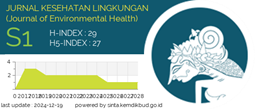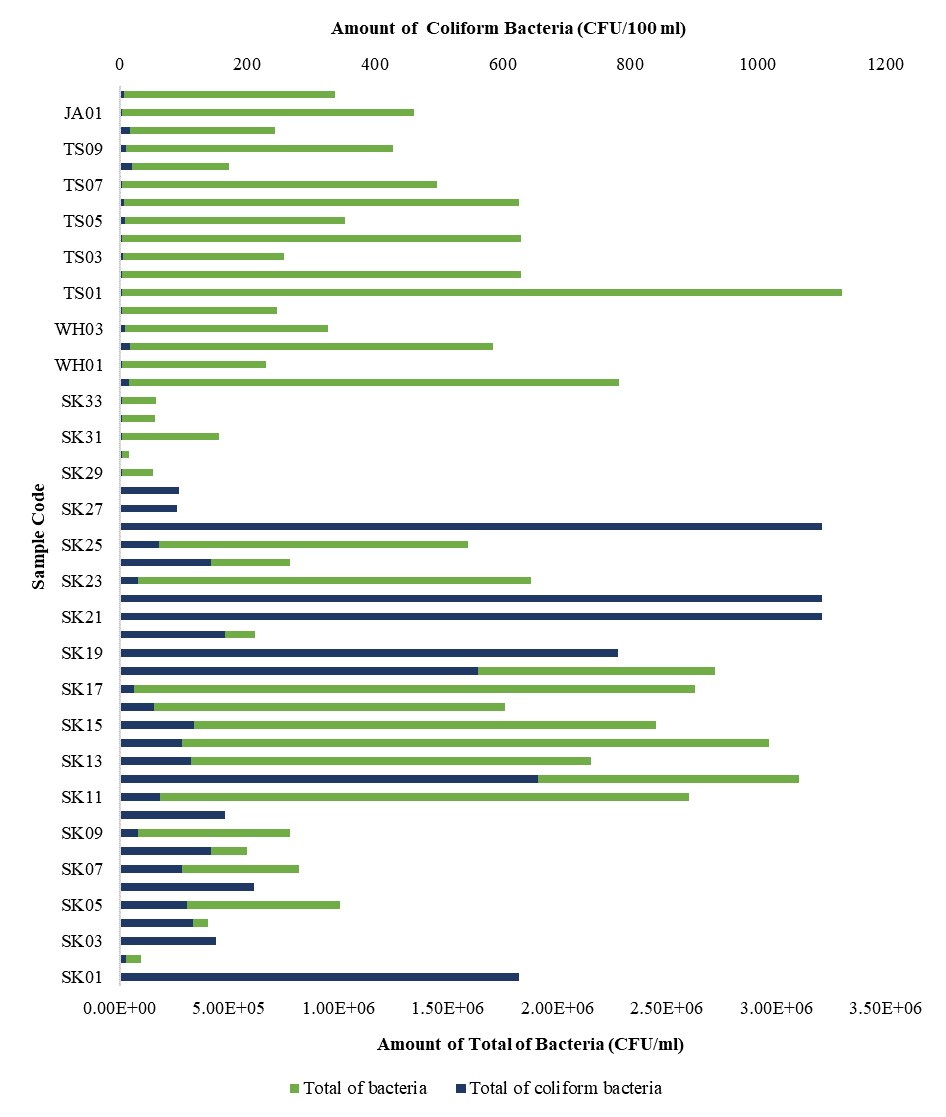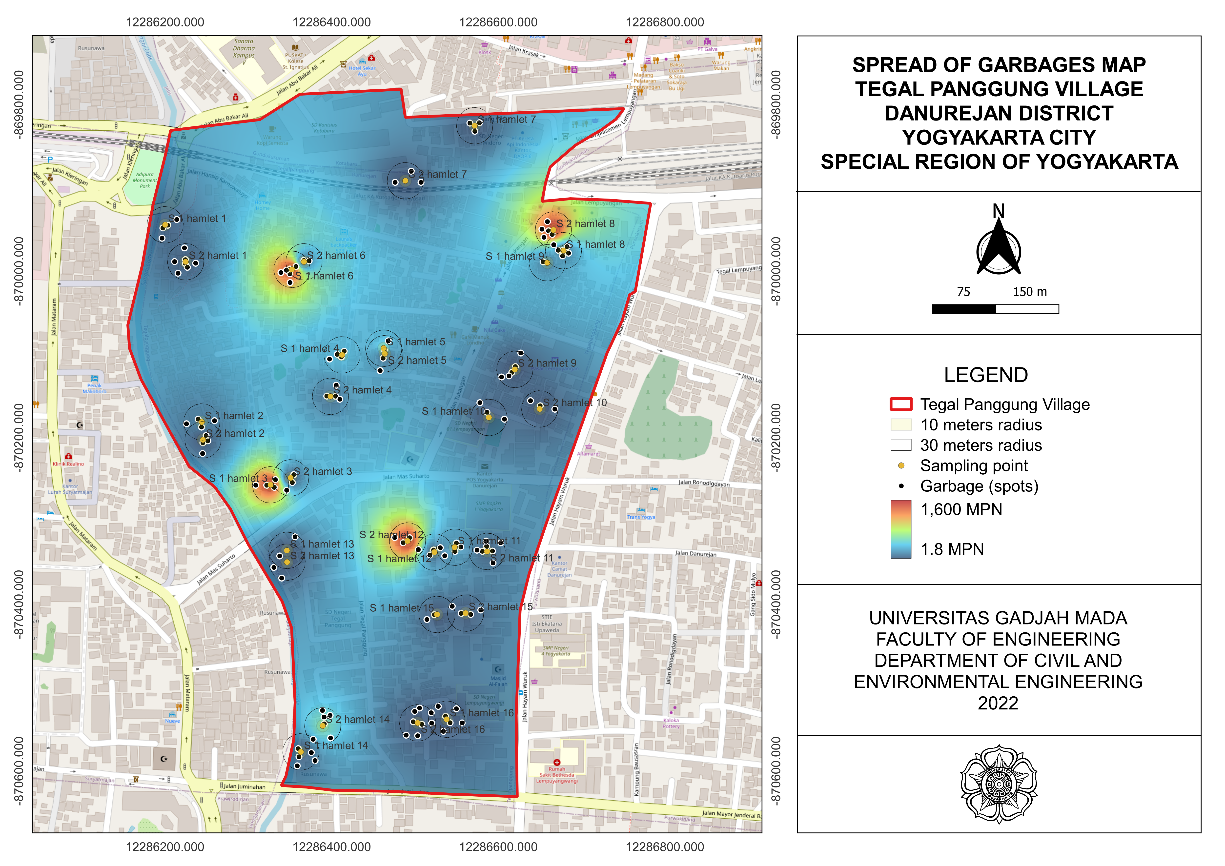Pesticide Exposure and Hypertension Risk in Indonesian Agricultural Workers: A Systematic Review and Meta-Analysis

Introduction: Agriculture workers exposed to pesticides are at high risk for hypertension, which is known as a cause of cardiovascular disease worldwide. Due to agricultural relevance and pesticides exposure, pesticide use and hypertension have garnered attention. This study investigated pesticide exposure and hypertension risk. Discussion: In line with the PRISMA guidelines, we conducted a systematic review and meta-analysis of cross-sectional studies published between 2015 and 2024. A total of 14 studies from Indonesia focusing on agriculture were selected, representing a variety of geographic areas and research methods. The pooled analysis revealed a prevalence ratio (PR) of 1.64 (95% CI: 1.35–1.99), indicating that farmers exposed to pesticides had a far higher risk of hypertension than those who were not. Long-term exposure, higher doses of pesticides containing active ingredients of commonly used pesticides, such as chlorpyrifos and profenofos, frequent spraying, improper use of personal protective equipment (PPE), age, smoking, and work-related stress all increased risk. Pesticides can affect cardiovascular control through oxidative stress, neuroendocrine disruption, and endocrine disruption, according to global reports. Conclusion: This systematic review and meta-analysis underscores the significant environmental health risks posed by pesticides exposure, particularly its contribution to hypertension among Indonesian agriculture workers. Prolonged exposure, inadequate use of PPE, and poor safety practices exacerbate these risks. The findings highlight the urgent need for stricter environmental health regulations, the implementation of integrated pest management, and improved education on pesticide safety. These measures are essential to protect agricultural workers and reduce pesticide-related health risks in communities.
World Health Organization. Global Report on Hypertension: the Race Against A Silent Killer. Geneva: World Health Organization; 2023. https://www.who.int/publications/i/item/9789240081062
Salaroli LB, Cattafesta M, Petarli GB, Ribeiro SAV, Soares ACO, Zandonade E, et al. Prevalence and Factors Associated with Arterial Hypertension in A Brazilian Rural Working Population. Clinics (Sao Paulo). 2020;75(1603). https://doi.org/10.6061/clinics/2020/e16033.
Matias SL, French CD, Gomez-Lara A, Schenker MB. Chronic Disease Burden Among Latino Farmworkers in California. Front Public Health. 2022;10:1024083. https://doi.org/10.3389/fpubh.2022.1024083
Mendez CA-O. Cardiovascular Disease Risk Factors in Latino Migrant Seasonal Farmworkers: A Meta-Analysis. Hisp Health Care Int. 2024(1938-8993 (Electronic)):15404153241302253. https://doi.org/10.1177/15404153241302253
Kementerian Kesehatan Republik Indonesia. Survei Kesehatan Indonesia Tahun 2023. Jakarta: Kemenkes RI; 2023. https://www.badankebijakan.kemkes.go.id/ski-2023-dalam-angka/
Mills KT, Stefanescu A, He J. The Global Epidemiology of Hypertension. Nature Reviews Nephrology. 2020;16(4):223-237. https://doi.org/10.1038/s41581-019-0244-2
Wang D, Hu X, Jin H, Liu J, Chen X, Qin Y, et al. Impaired Kidney Function and the Risk of All-Cause Mortality and Cardiovascular Disease Among Chinese Hypertensive Adults: Using Three Different Equations to Estimate the Glomerular Filtration Rate. Preventive Medicine. 2024;180:107869. https://doi.org/10.1016/j.ypmed.2024.107869
Lee H, Kwon SH, Jeon JS, Noh H, Han DC, Kim H. Association Between Blood Pressure and the Risk of Chronic Kidney Disease in Treatment-Naive Hypertensive Patients. Kidney Res Clin Pract. 2022;41(1):31-42. https://doi.org/10.23876/j.krcp.21.099
Adeyemi JA, Ukwenya VO, Arowolo OK, Olise CC. Pesticides-induced Cardiovascular Dysfunctions: Prevalence and Associated Mechanisms. Curr Hypertens Rev. 2021;17(1):27-34. https://doi.org/10.2174/1573402117666210111102508
Ahmad MF, Ahmad FA, Alsayegh AA, Zeyaullah M, AlShahrani AM, Muzammil K, et al. Pesticides Impacts on Human Health and the Environment with Their Mechanisms of Action and Possible Countermeasures. Heliyon. 2024;10(7):1-26. https://doi.org/10.1016/j.heliyon.2024.e29128
Kumar V, Sharma N, Sharma P, Pasrija R, Kaur K, Umesh M, et al. Toxicity Analysis of Endocrine Disrupting Pesticides on Non-Target Organisms: A Critical Analysis on Toxicity Mechanisms. Toxicology and Applied Pharmacology. 2023;474(116623):1-11. https://doi.org/10.1016/j.taap.2023.116623
Forte CA, Colacino J, Polemi K, Guytingco A, Peraino NJ, Jindaphong S, et al. Pesticide Exposure and Adverse Health Effects Associated with Farmwork in Northern Thailand. J Occup Health. 2021;63(1):1-13. https://doi.org/10.1002/1348-9585.12222
Pedroso TMA, Benvindo-Souza M, de Araujo Nascimento F, Woch J, Dos Reis FG, de Melo ESD. Cancer and Occupational Exposure to Pesticides: A Bibliometric Study of the Past 10 Years. Environ Sci Pollut Res Int. 2022;29(12):17464-17475. https://doi.org/10.1007/s11356-021-17031-2
Cherrie JW. Occupational Exposure Science. Ann Work Expo Health. 2023;67(8):915-919. https://doi.org/10.1093/annweh/wxad052
Sagheer U, Al-Kindi S, Abohashem S, Phillips CT, Rana JS, Bhatnagar A, et al. Environmental Pollution and Cardiovascular Disease: Part 2 of 2: Soil, Water, and Other Forms of Pollution. JACC Adv. 2024;3(2):1-11. https://doi.org/10.1016/j.jacadv.2023.100815
Chen H, Liang X, Chen L, Zuo L, Chen K, Wei Y-H, et al. Associations Between Household Pesticide Exposure, Smoking and Hypertension. Frontiers in Public Health. 2022;10:1-7. https://doi.org/10.3389/fpubh.2022.754643
Zhou Y, Shi J, Wei D, Zhao M, Ma C, Geng J, et al. Long-Term Herbicide Mixture Exposure Increases Hypertension Risk and Aging Biomarkers Play Mediation Effects: A Nested Case-Control Study. Exposure and Health. 2025;17(00676):537-550. https://doi.org/10.1007/s12403-024-00676-y
Leonel Javeres MN, Habib R, Judith Laure N, Abbas Shah ST, Valis M, Kuca K, et al. Chronic Exposure to Organophosphates Pesticides and Risk of Metabolic Disorder in Cohort from Pakistan and Cameroon. Int J Environ Res Public Health. 2021;18(5):1-13. https://doi.org/10.3390/ijerph18052310
Budiyono B, Suhartono S, Kartini A. Types and Toxicity Levels of Pesticides: A Study of an Agricultural Area in Brebes Regency. Jurnal Kesehatan Lingkungan. 2023;15(2):109-119. https://doi.org/10.20473/jkl.v15i2.2023.109-119
de-Assis MP, Barcella RC, Padilha JC, Pohl HH, Krug SBF. Health Problems in Agricultural Workers Occupationally Exposed to Pesticides. Rev Bras Med Trab. 2021;18(3):352-363. https://doi.org/10.47626/1679-4435-2020-532
Glover F, Eisenberg ML, Belladelli F, Del Giudice F, Chen T, Mulloy E, et al. The Association Between Organophosphate Insecticides and Blood Pressure Dysregulation: NHANES 2013-2014. Environ Health. 2022;21(1):74. https://doi.org/10.1186/s12940-022-00887-3
Chen Z, Wu R, Wei D, Wu X, Ma C, Shi J, et al. New Findings on the Risk of Hypertension from Organophosphorus Exposure Under Different Glycemic Statuses: the Key Role of Lipids? Science of The Total Environment. 2024;930(172711):1-12. https://doi.org/10.1016/j.scitotenv.2024.172711
Dong Y, and Yu Y. Association Between Non-Persistent Pesticides and Hypertension in Adults: Insights from NHANES. International Journal of Environmental Health Research. 2025:1-11. https://doi.org/10.1080/09603123.2025.2461108
Fuadi MF, Setiani O, Yd N. Risk of Exposure of Pesticides on the Hipertens of Women Farmers in Shallot Agriculture, Banjaratma village Bulakamba Brebes District. 2020;3(2):46-63.https://doi.org/10.1234/IJHES.V3I5.91
Salikunna NA, Kurniawan A, Fitriana Y, Ramadhan MZ. The Relationship Between Pesticide Exposure and Hypertension Incidence on Paddy Farmers in Dolago Padang Village, Central Sulawesi. IOP Conference Series: Earth and Environmental Science. 2022;1075(1):1-5. https://doi.org/10.1088/1755-1315/1075/1/012015
Buana C, Sutriyanti Y, Mulyadi M, Almaini A. Hubungan Penggunaan Pestisida Terhadap Kejadian Hipertensi Pada Petani Sayur mayur di Wilayah Puskesmas Sambirejo Kabupaten Rejang Lebong Tahun 2021. Jurnal Keperawatan Raflesia. 2022;4(1):41-50. https://doi.org/10.33088/jkr.v4i1.731
Page MJ, McKenzie JE, Bossuyt PM, Boutron I, Hoffmann TC, Mulrow CD, et al. The PRISMA 2020 Statement: an Updated Guideline for Reporting Systematic Reviews. Syst Rev. 2021;10(89):1-11. https://doi.org/10.1186/s13643-021-01626-4
Joanna Briggs Institute Critical Appraisal Checklist for Analytical Cross Sectional Studies. 2020. https://jbi.global/critical-appraisal-tools
Dettori JR, Norvell DC, Chapman JR. Fixed-Effect vs Random-Effects Models for Meta-Analysis: 3 Points to Consider. Global Spine J. 2022;12(7):1624-1626. https://doi.org/10.1177/21925682221110527
Veroniki AA, McKenzie JE. A Brief Note on the Common (Fixed)-Effect Meta-Analysis Model. Journal of Clinical Epidemiology. 2024;169:(111281):1-5. https://doi.org/10.1016/j.jclinepi.2024.111281
Ulfa EF, Darundiati YH, Setiani O, Dewanti NAY. Faktor-Faktor yang Berhubungan dengan Kejadian Hipertensi Pada Petani Padi di Desa Prajegan Kecamatan Sukorejo Kabupaten Ponorogo. Jurnal Kesehatan Masyarakat. 2024;12(1):84-90. https://doi.org/10.14710/jkm.v12i1.39571
Hidayat CNA, Setiani O, Dewanti NAY, Darundiati YH. Analisis Faktor Risiko Paparan Pestisida Terhadap Kejadian Hipertensi Pada Petani Bawang Merah. Jurnal Riset Kesehatan Poltekkes Depkes Bandung. 2023;15(2):410-422. https://doi.org/10.34011/juriskesbdg.v15i2.2209
Nikmah SS, Pawenang ET. Faktor Kejadian Hipertensi pada Petani Penyemprot Bunga. Higeia Journal of Public Health Research and Development. 2020;4(2):381-391.https://doi.org/10.15294/higeia.v4iSpecial%202/33975
Arifah AS, Wijayanti Y. Pajanan Pestisida dengan Kejadian Hipertensi pada Petani. Higeia Journal of Public Health Research and Development. 2023;7(1):32-43. https://doi.org/10.15294/higeia.v7i1.60035
Nurkhayati S, Nurjazuli, Joko T. Hubungan Paparan Pestisida dengan Tekanan Darah Diastolik Pada Petani Hortikultura Desa Kapuhan Kecamatan Sawangan Kabupaten Magelang. Jurnal Kesehatan Masyarakat. 2018;6(6):335-343. https://doi.org/https://doi.org/10.14710/jkm.v6i6.22195
Agustina F, Suhartono, Dharminto. Hubungan Pajanan Pestisida dengan Kejadian Hipertensi Pada Petani Hortikultura di Desa Gerlang Kecamatan Blado Kabupaten Batang. Jurnal Kesehatan Masyarakat. 2018;6(4):447-452. https://doi.org/https://doi.org/10.14710/jkm.v6i4.21453
Zulfania KD, Setiani O, Dangiran HL. Hubungan Riwayat Paparan Pestisida dengan Tekanan Darah Pada Petani Penyemprot di Desa Sumberejo Kecamatan Ngablak Kabupaten Magelang. Jurnal Kesehatan Masyarakat. 2017;5(3):392-401. https://doi.org/https://doi.org/10.14710/jkm.v5i3.17254
Liem JF, Lumanauw AGE, Sutanti YS, Hudyono J. Prevalence of Hypertension in Pesticide Applicators and Contributing Factors: A Cross-Sectional Study. Jurnal MedScientiae. 2023;2(2):1-6. https://doi.org/10.36452/JMedScientiae.v2i2.2855
Prihartono NA, Fitria L, Ramdhan DH, Fitriyani F, Fauzia S, Woskie S. Determinants of Hypertension amongst Rice Farmers in West Java, Indonesia. Int J Environ Res Public Health. 2022;19(3):1-13. https://doi.org/10.3390/ijerph19031152
Nurlaely HS. Hubungan Penggunaan Pestisida dengan Kejadian Hipertensi Pada Petani Kopi di Desa Pante Raya Kecamatan Wih Pesam Kabupaten Bener Meriah. Jurnal Promotif Preventif. 2023;6(3):425-429. https://doi.org/10.47650/jpp.v6i3.852
Mawaddah RAE, Sugiarto, Kurniawati E. Faktor yang Berhubungan dengan Tekanan Darah Pada Petani di Wilayah Kerja Puskesmas Paal Merah Ii Kota Jambi Tahun 2021. Jurnal Inovasi Penelitian. 2022;2(10):3297-3302. https://doi.org/10.47492/jip.v2i10.1322
Yuyun W, Irma, Handayani L. Faktor-Faktor yang Berhubungan dengan Kejadian Hipertensi Pada Petani di Kelurahan Wakoko, Kecamatan Pasarwajo, Kabupaten Buton. Journal of Health Science Leksia (JHSL). 2024;2(1):16-30. https://jhsljournal.com/index.php/ojs/article/view/26
Nisar S, Muzaffer U, Kareem O. Acute Health Effects of Pesticide Exposure among Farmers Directly Involved with Spraying: A Cross-Sectional Pilot Study from Kashmir Valley. International Journal of Health Sciences and Research. 2021;11(5):169-177. https://doi.org/10.52403/ijhsr.20210527
Bunsri S, Muenchamnan N, Naksen W, Ong-Artborirak P. The Hematological and Biochemical Effects from Pesticide Exposure on Thai Vegetable Farmers. Toxics. 2023;11(8):1-11. https://doi.org/10.3390/toxics11080707
Boateng KO, Dankyi E, Amponsah IK, Awudzi GK, Amponsah E, Darko G. Knowledge, Perception, and Pesticide Application Practices Among Smallholder Cocoa Farmers in Four Ghanaian Cocoa-Growing Regions. Toxicol Rep. 2023;10(008):46-55. https://doi.org/10.1016/j.toxrep.2022.12.008
Stedile NLR, Cioato FM, Cavion EM. The Use of Pesticides and the Signs of Poisoning in Farmers of Southern Brazil. MOJ Ecology & Environmental Sciences. 2023;8(1):9-12. https://doi.org/10.15406/mojes.2023.08.00267
Ganie SY, Javaid D, Hajam YA, Reshi MS. Mechanisms and Treatment Strategies of Organophosphate Pesticide Induced Neurotoxicity in Humans: A Critical Appraisal. Toxicology. 2022;472(153181):1-10. https://doi.org/10.1016/j.tox.2022.153181
Marques J, Fernandez-Irigoyen J, Ainzua E, Martinez-Azcona M, Cortes A, Roncal C, et al.NADPH Oxidase 5 (NOX5) Overexpression Promotes Endothelial Dysfunction Via Cell Apoptosis, Migration, and Metabolic Alterations in Human Brain Microvascular Endothelial Cells (hCMEC/D3). Antioxidants (Basel). 2022;11(11):1-26. https://doi.org/10.3390/antiox11112147
Shaito A, Aramouni K, Assaf R, Parenti A, Orekhov A, Yazbi AE, et al. Oxidative Stress-Induced Endothelial Dysfunction in Cardiovascular Diseases. Front Biosci (Landmark Ed). 2022;27(3):1-14. https://doi.org/10.31083/j.fbl2703105
Yan R, Zhang X, Xu W, Li J, Sun Y, Cui S, et al. ROS-Induced Endothelial Dysfunction in the Pathogenesis of Atherosclerosis. Aging Dis. 2024;16(1):250-268. https://doi.org/10.14336/AD.2024.0309
Anlar H, Bacanli M, Başaran N. Endocrine Disrupting Mechanisms and Effects of Pesticides. Arhiv za farmaciju. 2021;71(6):480-490. https://doi.org/10.5937/arhfarm71-34291
Makaryus AN, Capric V, Priyan CH, Celenza-Salvatore J. The Role of the Renin-Angiotensin-Aldosterone System in Cardiovascular Disease: Pathogenetic Insights and Clinical Implications. In: McFarlane SI, editor. Renin-Angiotensin Aldosterone System. Rijeka: IntechOpen; 2021. https://doi.org/10.5772/intechopen.96415
Kim HJ, Kim W-J, Lee DW, Jung S-H, Cho N-J, Park S, et al. Inflammatory cytokines in patients with pesticide poisoning: a pilot study. Journal of The Korean Society of Clinical Toxicology. 2022;20(1):15-21. https://doi.org/10.22537/jksct.2022.20.1.15
Knopp T, Jung R, Wild J, Bochenek ML, Efentakis P, Lehmann A, et al. Myeloid Cell-derived interleukin-6 Induces Vascular Dysfunction and Vascular and Systemic Inflammation. Eur Heart J Open. 2024;10(7):1-26. https://doi.org/10.1093/ehjopen/oeae046
Hoang TT, Qi C, Paul KC, Lee M, White JD, Richards M, et al. Epigenome-Wide DNA Methylation and Pesticide Use in the Agricultural Lung Health Study. Environ Health Perspect. 2021;129(9):1-11. https://doi.org/10.1289/EHP8928
Rohr P, Karen S, Francisco LFV, Oliveira MA, Dos Santos Neto MF, Silveira HCS. Epigenetic processes Involved in Response to Pesticide Exposure in Human Populations: A Systematic Review and Meta-Analysis. Environ Epigenet. 2024;10(1):1-14. https://doi.org/10.1093/eep/dvae005
Lestari D, Astutik Y. Literature Study: Overview of Cholinesterase Enzyme Activity in Horticultural Farmers Exposed to Organophosphates and Carbamates. International Journal of Medical Sciences and Pharma Research. 2023;9(3):1-6. https://doi.org/10.22270/ijmspr.v9i3.66
Mulyana M, Sugiarta I, Fuk LJ, Pratami V, Fitriani D, Adi N, et al. Biomonitoring of Acetylcholinesterase (AChE) Inhibitor and the Association with Hypertension among Farmers in Bandung, Indonesia. The Indonesian Biomedical Journal. 2020;27(3):325-332. https://doi.org/10.18585/inabj.v12i4.1220
Saftarina F, Angraini D, Susanto T. Spatial Analysis of Environmental Health Aspects on Cholinesterase Levels Among Farmers Using Pesticides. Proceedings of the 2nd Biennial International Conference on Safe Community, B-ICSC 2022. Bandar Lampung, Lampung, Indonesia. https://doi.org/10.4108/eai.20-9-2022.2334144
Maksuk, Kumalasari I, Amin M, Pane M. Health Risk Assessment of Pesticide Exposure in Farmers Around Rice Farming Area in Ogan Ilir Regency, South Sumatra, Indonesia. The Indonesian Journal of Public Health. 2024;19(1):118-131. https://doi.org/10.20473/ijph.v19i1.2024.118-131

This work is licensed under a Creative Commons Attribution-NonCommercial-ShareAlike 4.0 International License.
1. Copyright of all journal manuscripts is held by the Jurnal Kesehatan Lingkungan.2. Formal legal provisions to access digital articles of electronic journal are subject to the provision of the Creative Commons Attribution-ShareAlike license (CC BY-NC-SA), which means that Jurnal Kesehatan Lingkungan is rightful to keep, transfer media/format, manage in the form of databases, maintain, and publish articles.
3. Published manuscripts both printed and electronic are open access for educational, research, and library purposes. Additionally, the editorial board is not responsible for any violations of copyright law.
JKESLING by UNAIR is licensed under a Creative Commons Attribution-ShareAlike 4.0 International License.







































